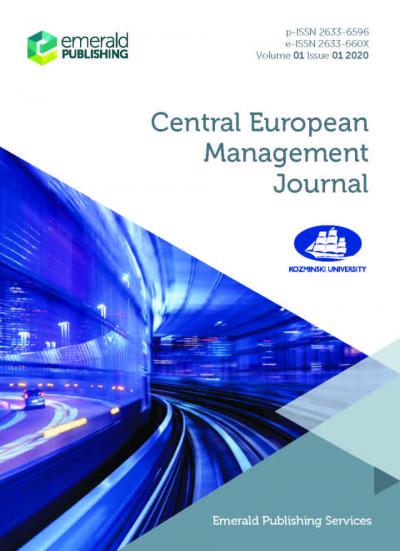Co-creation of business and marketing models for SMEs in short food supply chains in Lithuania, Latvia and Poland
Co-creation of business and marketing models for SMEs in short food supply chains in Lithuania, Latvia and Poland
Author(s): Adam Oleksiuk, Katarzyna Rull QuesadaSubject(s): National Economy, Business Economy / Management, Agriculture
Published by: Akademia Leona Koźmińskiego
Keywords: Small and medium-sized enterprises (SMEs); SFCS’s business models; SFSC’s barriers; Short food supply chains (SFSCs);
Summary/Abstract: Purpose – The aim of this article is to identify the issues of short food supply chains (SFSCs) in three countries of Central and Eastern Europe, i.e. Lithuania, Latvia and Poland, to compare the barriers to shortening food supply chains and to indicate business models for short supply chains.Design/methodology/approach – Within the AgroBRIDGES project, the authors organized local co-creation workshops from August to September 2021 in 12 European regions and countries, engaging 150þ agrifood stakeholders of the project’s local communities.Findings – The development potential of SFSCs in Lithuania, Latvia and Poland is high and seems to be growing every year. Currently, the development potential of SFSCs in Lithuania, Latvia and Poland is stimulated more by social trends than by public support. Traditional business models based on the distribution of food products through local and regional markets have a definitely diminishing potential. Research limitations/implications – Although this article covers an existing gap in the literature, it also has several limitations that may serve as an inspiration for future research. First, the results draw on a sample of agrifood value chain stakeholders in Lithuania, Latvia and Poland; hence, the findings might be industry specific. Therefore, future studies should explore this topic on wider target groups or different industries. Moreover, the method is qualitative and could be supplemented with additional quantitative analysis of similar tools or the experience of other agrifood companies from European countries.Practical implications – The article seeks to build bridges between consumers and producers by supporting SFSCs through a systemic, holistic and multi-actor approach.Originality/value – The study elaborates on the under-researched topic of SFSCs in the context of barriers to shortening food supply chains and business models for short supply chains in Lithuania, Latvia and Poland.Keywords Small and medium-sized enterprises (SMEs), SFCS’s business models, SFSC’s barriers, Short food supply chains (SFSCs)
Journal: Central European Management Journal
- Issue Year: 31/2023
- Issue No: 3
- Page Range: 374-389
- Page Count: 16
- Language: English

